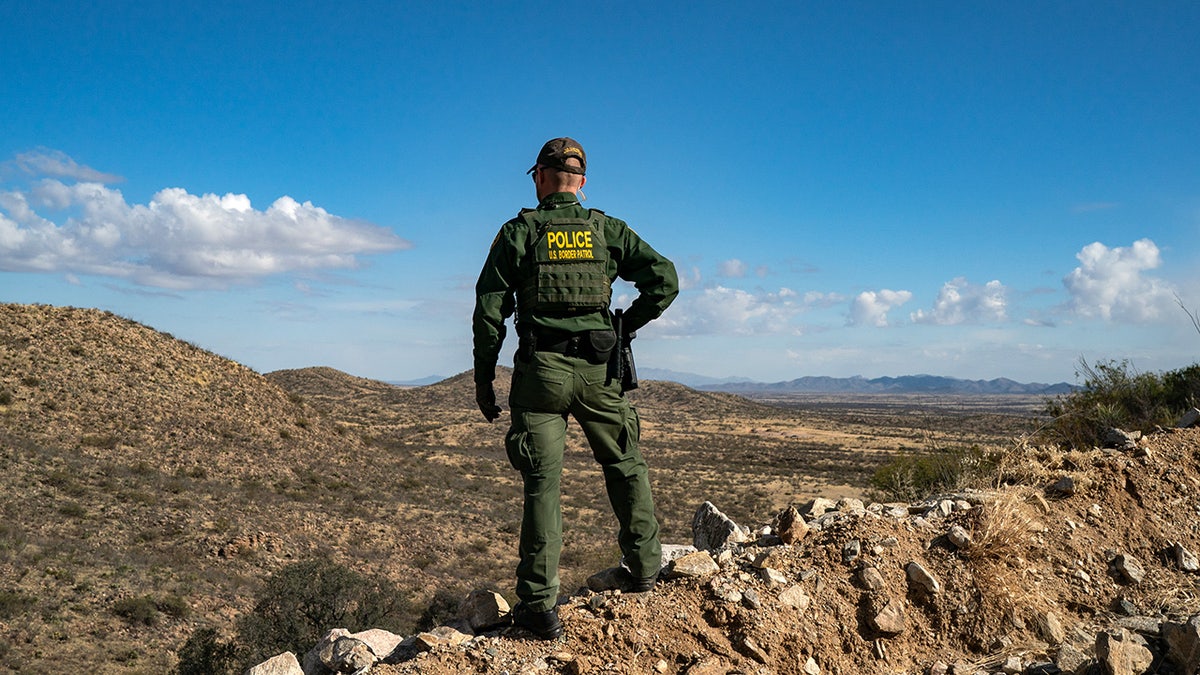Impeachment is a 'final tool' to hold the Biden admin accountable for the border: Gooden
Rep. Lance Gooden, R-Texas, joined 'Fox & Friends First' to discuss the importance of Republicans voting to impeach DHS Secretary Mayorkas and the latest on misconduct allegations surrounding Fulton County DA Fani Willis.
U.S. Immigration and Customs Enforcement is at risk of having to release thousands of detainees amid a budget shortfall that will persist after the failure of a Senate border bill.
ICE is currently facing a $700 million budget shortfall that would have been addressed by the Senate border bill that failed to gain traction last week, causing agency leaders to circulate proposals for cost savings such as slashing its detention capacity and releasing roughly 16,000 migrants, according to a report from the Washington Post.
According to the report, the bill would have provided $6 billion in supplemental funding for ICE enforcement operations, a large boost for the agency ahead of spring's typically busy illegal crossing window.
SENATE TANKS IMMIGRATION, FOREIGN AID SPENDING PACKAGE AFTER GOP BACKLASH AGAINST BORDER PROVISIONS

ICE agents conduct an enforcement operation in the U.S. interior. (Immigration and Customs Enforcement)
The Department of Homeland Security, which oversees ICE, could try to cover the funding gap by repurposing money allotted to the Coast Guard or Transportation Security Administration, the report notes, though such moves would likely be controversial, and it is unknown if there would be enough money saved to make up for one of the largest budget shortfalls in recent years.
Last week, the Senate failed to pass the supplemental spending package that would have also included aid for Ukraine, Israel and Taiwan. The package, which needed 60 votes to pass, was voted down 49-50 on mostly party lines.
Conservative opposition to the bill mounted last week, with some Republican lawmakers arguing it wouldn't do enough to actually secure the border.
"We supported a negotiation to bring commonsense border security to this country," Sen. JD Vance, R-Ohio, said of the legislation. "We did not agree to a border fig leaf to send another $61 billion to Ukraine."

A Border Patrol agent stands on a cliff looking for migrants that crossed the U.S. and Mexico border near Sasabe, Arizona. (Salwan Georges/The Washington Post via Getty Images)
"The fact of the matter is the package includes catch and release, still providing additional continuing incentives for people to come to the country illegally knowing they'll be released into the interior, and it does nothing to stop the Biden administration from abusing something called parole," argued Sen. John Cornyn, R-Texas.
The legislation also faced opposition from the left, with Sen. Bob Menendez, D-N.J., arguing it would harm migrants attempting to seek asylum and be "an outright betrayal to the communities we have sworn an oath to protect and represent."
The bill was the product of months of bipartisan negotiation between lawmakers in the Senate and the White House, with moderate lawmakers such as Independent Arizona Sen. Kyrsten Sinema expressing frustration with the result.

President Biden walks along a stretch of the U.S.-Mexico border in El Paso Texas, Jan. 8, 2023. (AP Photo/Andrew Harnik, File)
"Both Democrats and Republicans are probably pretty happy that we're not going to do anything about border security," the Arizona lawmaker said in an interview with Fox News last week just before the failed vote. "But as Arizona's senator, I can tell you, this is devastating to my state."
Reached for comment by Fox News Digital, a DHS spokesperson argued the Congress has "chronically underfunded" DHS and its "vital missions on the southwest border."
"Most recently, Congress rejected the bipartisan national security bill out of hand, which will put at risk DHS’s current removal operations," the spokesperson added. "A reduction in ICE operations would significantly harm border security, national security and public safety."
The spokesperson noted that the failure to provide funding will have "widespread impacts," including the need to repurpose funds, scale back nonessential operations, and delay or cut investments in projects that would enhance border security.
"A reduction in ICE operations would significantly harm border security, national security, and public safety," the spokesperson said.









































